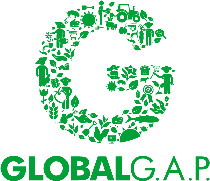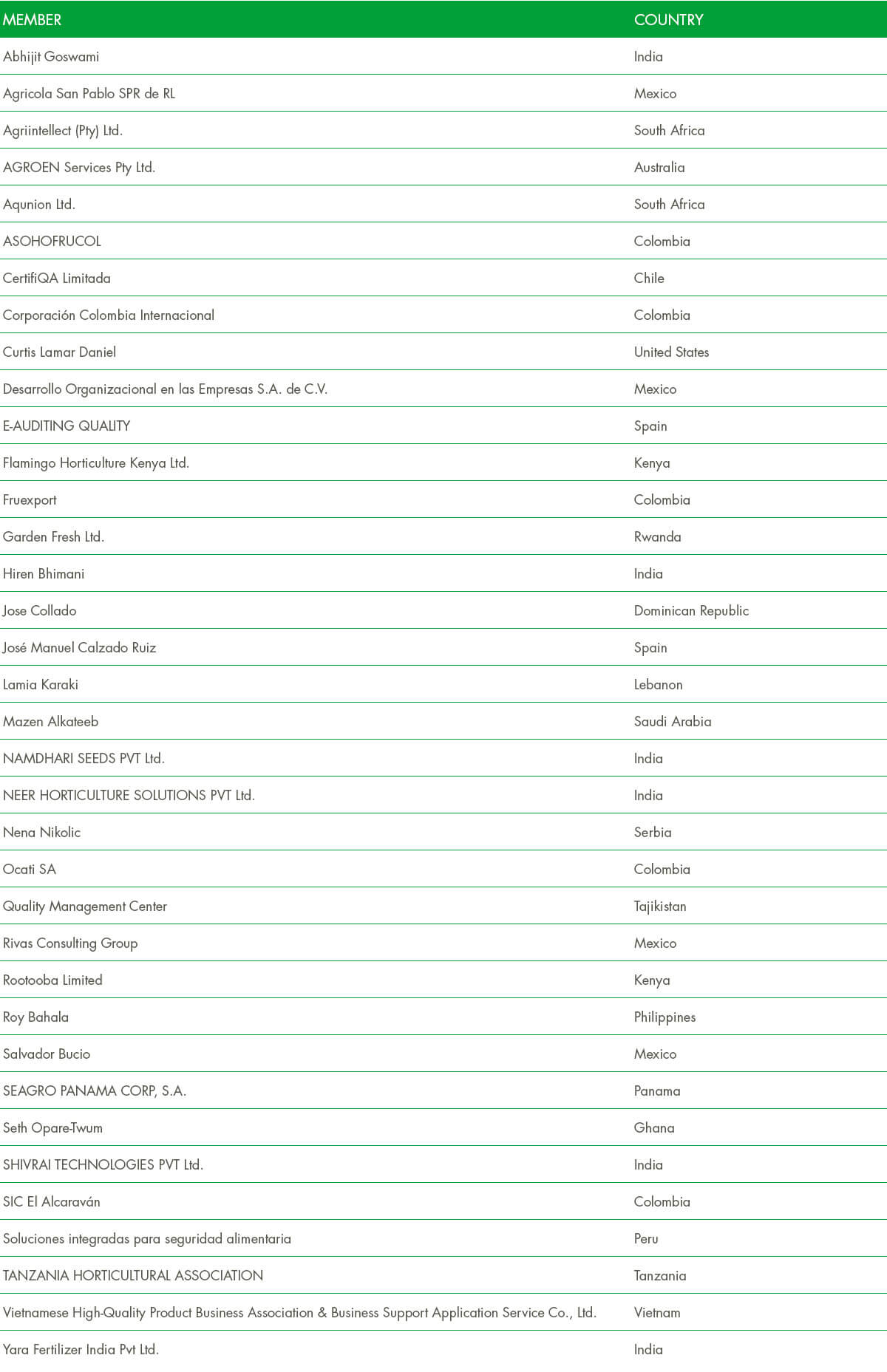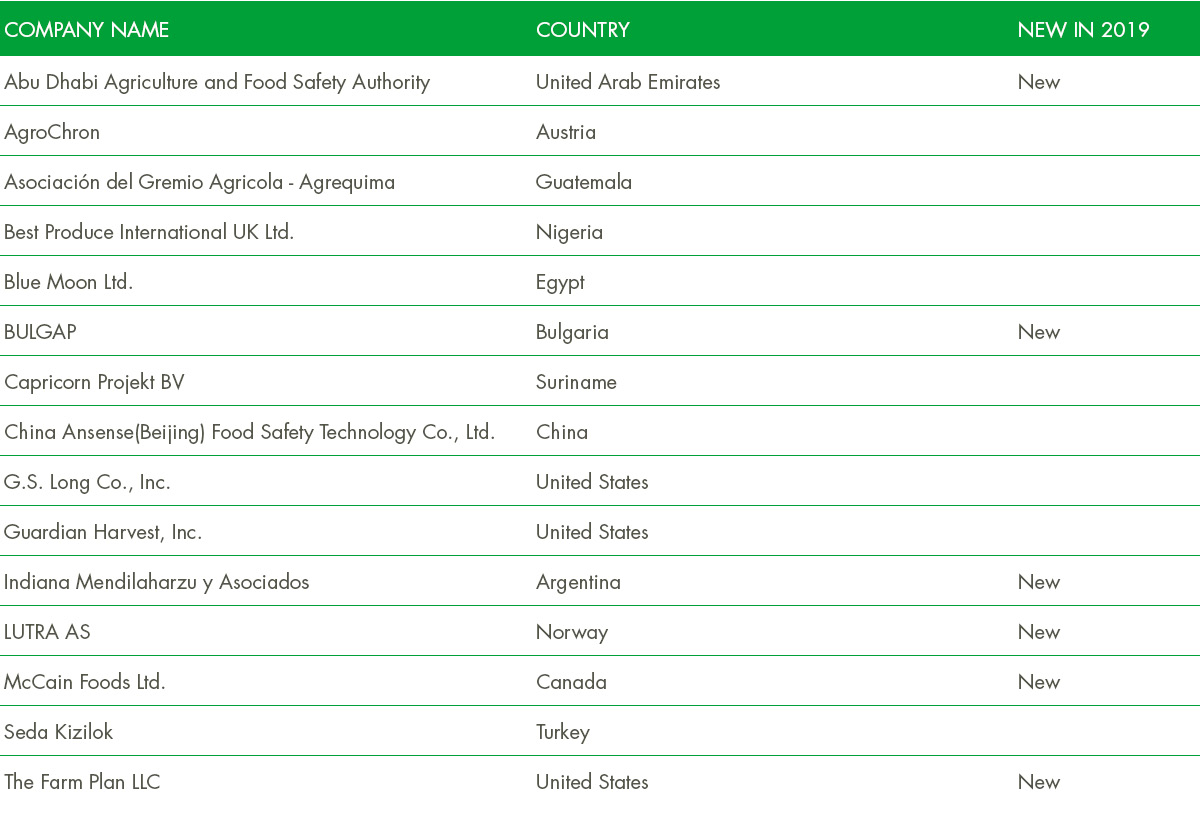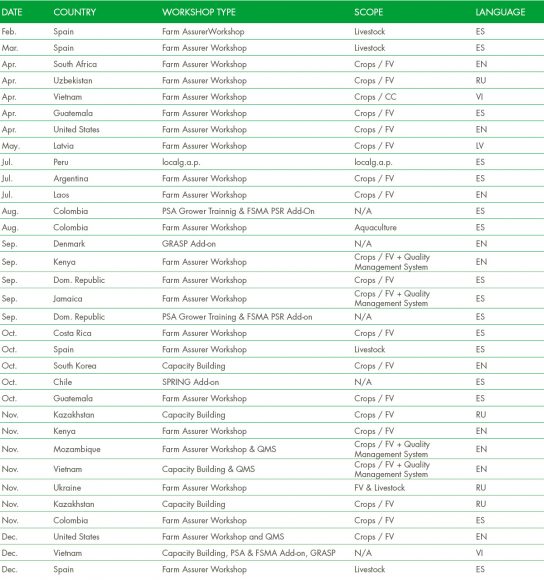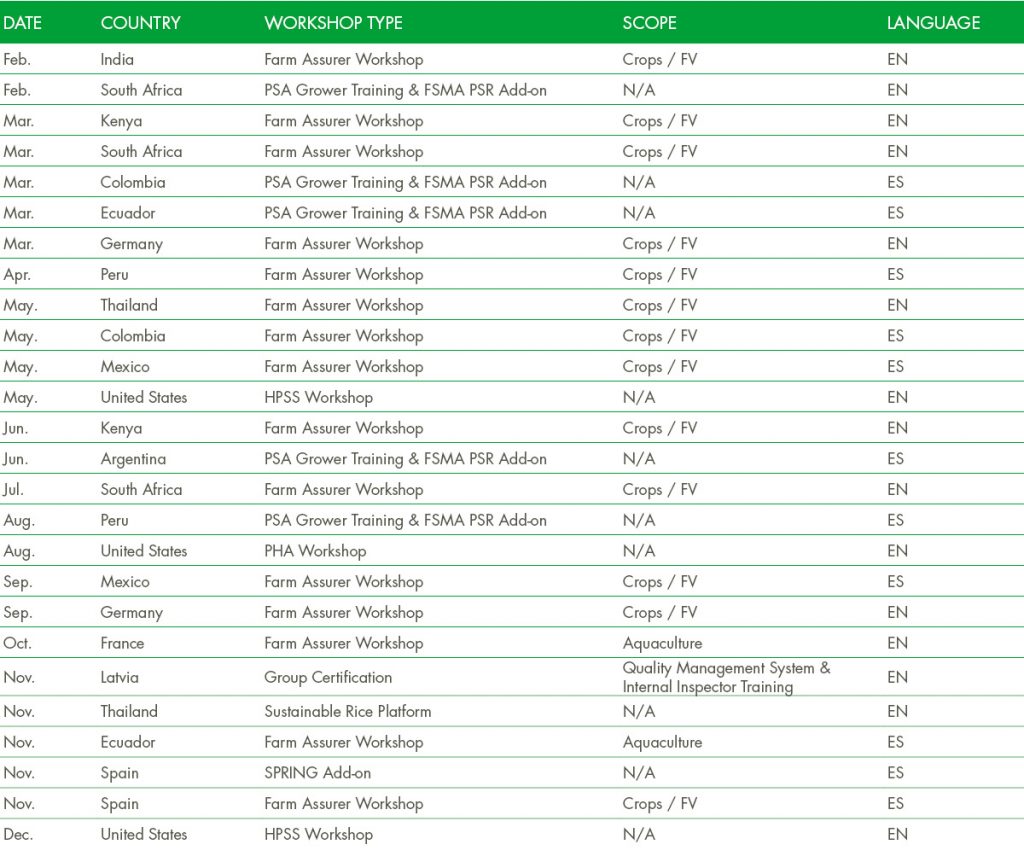WELCOME & highlights
events
products report
services report
governance & Network
Members
financial report
SERVICES report
GLOBALG.A.P. BENCHMARKING
GLOBALG.A.P. recognizes other standards as equivalent. This form of benchmarking avoids the need for duplicate audits and simplifies certification for producers. In turn, this reduces costs, administration, time, and effort for producers, suppliers, and retailers – contributing to higher engagement in safe and sustainable agriculture,
GLOBALG.A.P. offers two levels of benchmarking recognition – equivalent schemes/checklists (full conformance) and resembling schemes (incomplete but substantial conformance). By gaining GLOBALG.A.P. approval, benchmarked schemes and checklists also enjoy international recognition – a valuable advantage in the highly competitive global market.
Benchmarked Schemes in 2019
Benchmarked Schemes and Approved Modified Checklists Equivalent to IFA V5
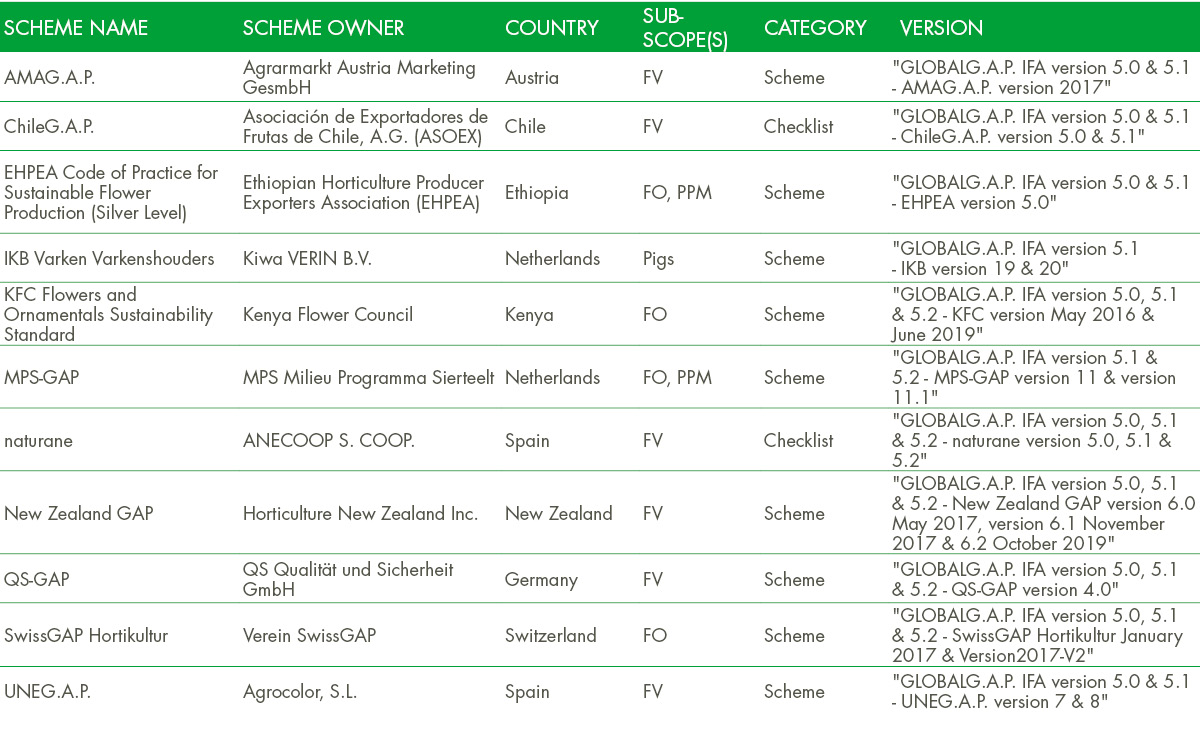
Benchmarked Schemes Resembling IFA V5

List of New Applicants and Reapplications for IFA V5
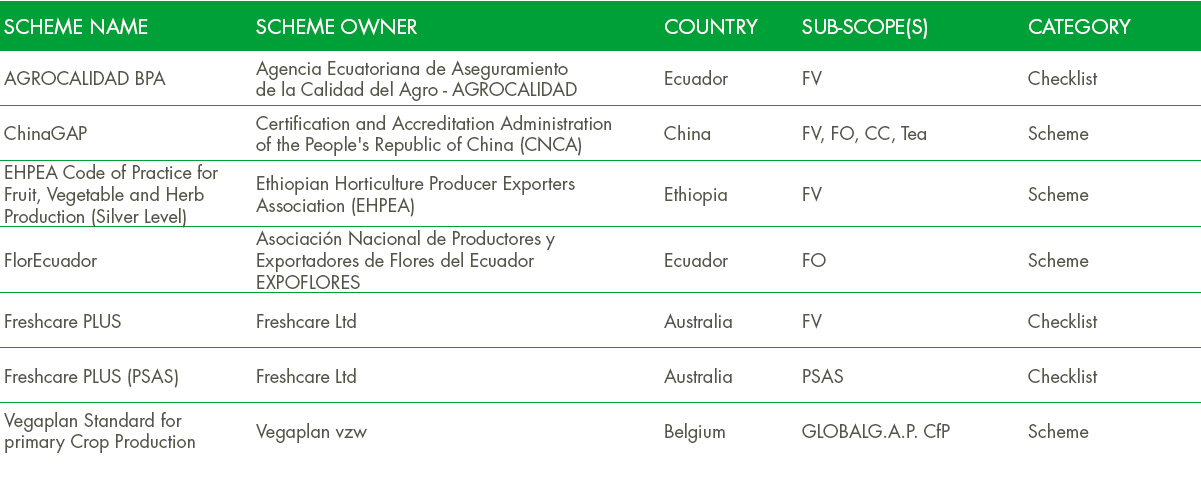
FARM ASSURERS
Farm Assurers are independent, GLOBALG.A.P. trained and approved consultants who provide expertise to producers. With first-hand knowledge about the GLOBALG.A.P. system and the latest industry developments, they make the standard easier to understand and help simplify audit preparations. Now in its ninth year, the Farm Assurer Program has continued to grow.
Number of Farm Assurers per Region in 2019
CAPACITY BUILDING
Capacity building means spreading knowledge of good agricultural practices on the ground, and is essential to our company purpose.
We channel information and knowledge through our trainers, experts, and large network of independent consultants (GLOBALG.A.P. licensed Farm Assurers) to reach producers. Producers are then in a better position to make informed commercial decisions and receive professional guidance on their way towards certification and new market opportunities.
THE GLOBALG.A.P. ACADEMY
The GLOBALG.A.P. Academy offers workshops and training programs to transfer our extensive certification experience, knowledge, and expertise to those who need it. Targeted, up-to-date trainings are offered in various locations around the world.
The following types of workshop were offered in 2019
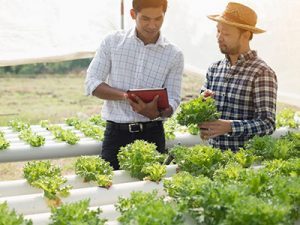
FARM ASSURER WORKSHOPS
For consultants and Farm Assurer applicants interested in offering services based on the GLOBALG.A.P. standard.
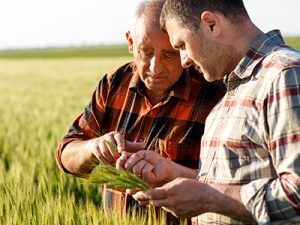
PRODUCER WORKSHOPS
For those interested in learning about the Integrated Farm Assurance (IFA) control points and compliance criteria. Ideal for producers and producer groups seeking certification or those wishing to update their IFA compliance information.
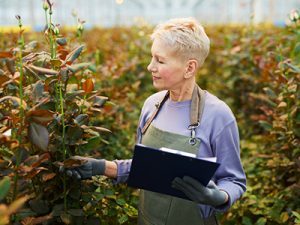
GROUP CERTIFICATION WORKSHOPS
For those interested in understanding how the GLOBALG.A.P. group and multisite certification system work.
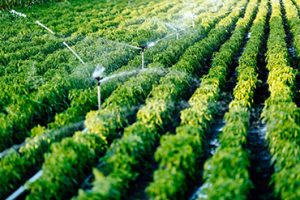
SPRING ADD-ON WORKSHOPS
For those seeking an introduction to the SPRING Add-on – an industry-approved solution to provide evidence of efforts made to manage water risks and promote sustainable water practices.

SUSTAINABLE RICE PLATFORM (SRP) TRAINING
GLOBALG.A.P. Academy is one of only two authorized SRP training providers worldwide and can offer the full range of SRP training solutions for producers and auditors.

PRODUCE SAFETY ALLIANCE GROWER TRAINING
For fruit and vegetable growers and others interested in learning about produce safety, the Food Safety Modernization Act (FSMA) Produce Safety Rule, good agricultural practices, and co-management of natural resources and food safety practices.
- Public workshops: Organized in cooperation with a local partner or directly by GLOBALG.A.P., open to the general public.
- Private workshops: Customized solutions for your organization's specific training needs.
CAPACITY BUILDING PROJECTS
Reviewing GLOBALG.A.P. in Jamaica
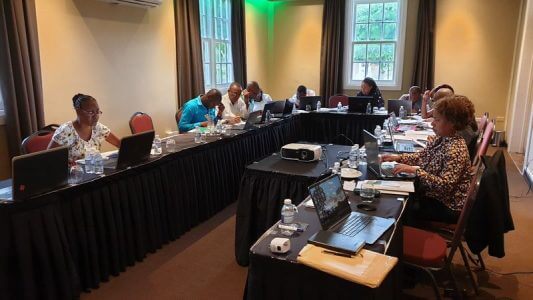
The Ministry of Industry, Commerce, Agriculture and Fisheries (MICAF) in Jamaica commissioned GLOBALG.A.P. to review the effectiveness, cost efficiency, and sustainability of the government’s approach to supporting the implementation of the GLOBALG.A.P. IFA standard and to assist in developing a framework for the implementation and monitoring of GLOBALG.A.P. in Essex Valley and additional sites. The framework should also support the long-term training of beneficiaries by recognized agricultural institutions in Jamaica, in keeping with the requirements of the GLOBALG.A.P. IFA standard.
The review revealed that although there are several modern agroparks and product handling units in the region, production had not yet begun. 30 people were trained on the GLOBALG.A.P. IFA standard and evaluated based on the Farm Assurer qualification requirements. As there were no available non-certified farms, GLOBALG.A.P. carried out pre-audit farm assessments (standard product) at four already-certified sites in order to gather further practical on-site experience and to see how the GLOBALG.A.P. IFA standard operates in practice.
With the objective of making G.A.P. principles more accessible and easy-to-implement, GLOBALG.A.P. developed three new instructional G.A.P. in Action videos on post-harvest hygiene, plant protection products, and waste management. In addition, a training concept was developed for use by the key organizations working directly with producers to familiarize them with the G.A.P. methodology and standard requirements.
The final assessment report included recommendations on how to further facilitate GLOBALG.A.P. implementation in Jamaica by making use of different entry tools, such as localg.a.p., directing available funds towards awareness-raising, expanding producer capacities, and improving the institutional framework through the creation of collaboration platforms such as a GLOBALG.A.P. National Technical Working Group.
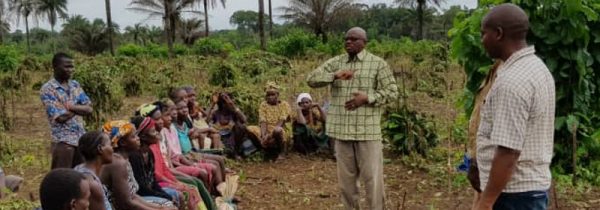
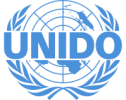
The United Nations Industrial Development Organization (UNIDO) commissioned GLOBALG.A.P. with the development of a mapping and diagnostic activity plan to formulate key interventions along the cassava value chain. Results were to be used as a baseline for further activities which serve the overall objective of increasing productivity and reducing post-harvest loss through the adoption of good agricultural practices and eventually achieving GLOBALG.A.P. certification to access export markets.
For this diagnostic activity, a GLOBALG.A.P. expert went on a scoping mission together with UNIDO and a cassava product expert to identify capacities, challenges, and needs – both at farm level and for other actors along the value chain.
Discussions held with farmers during this mission indicated a lack of on-farm awareness of good agricultural practices and certification as prerequisites for local and export trade in cassava and cassava products. Most farmers did not practice improved planting techniques or basic on-farm hygiene and sanitation. The hygiene situation at processing factories was similar. With regard to GLOBALG.A.P., no consulting services or working groups were available in the country, resulting in limited information flows and accessibility.
The findings of this mission were summarized in a report together with concrete recommendations for further activities and interventions to facilitate GLOBALG.A.P. implementation and compliance.
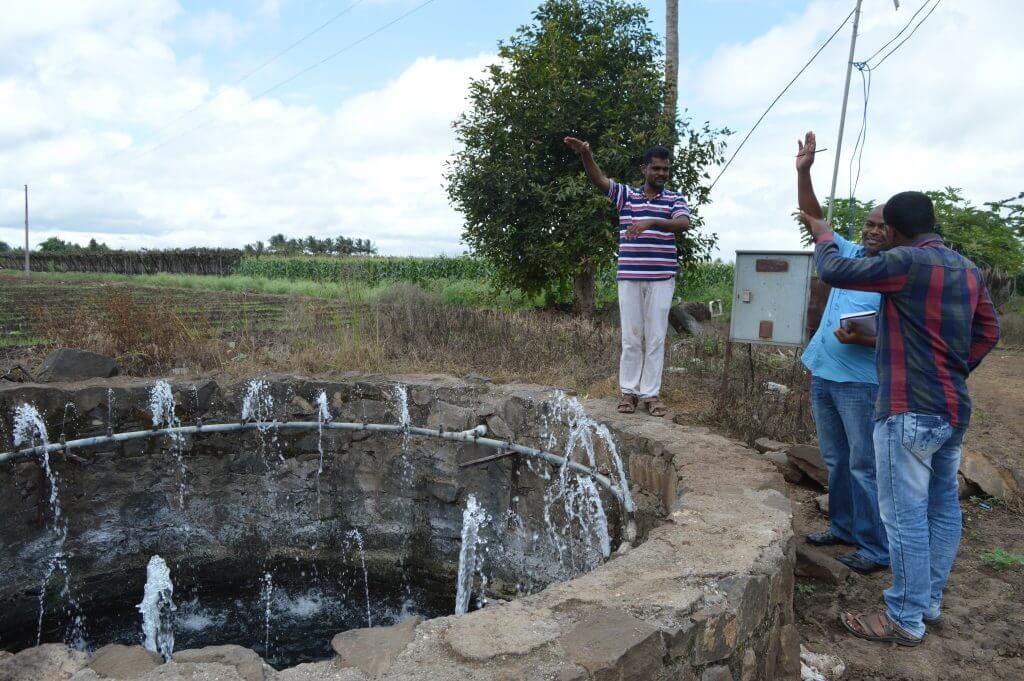
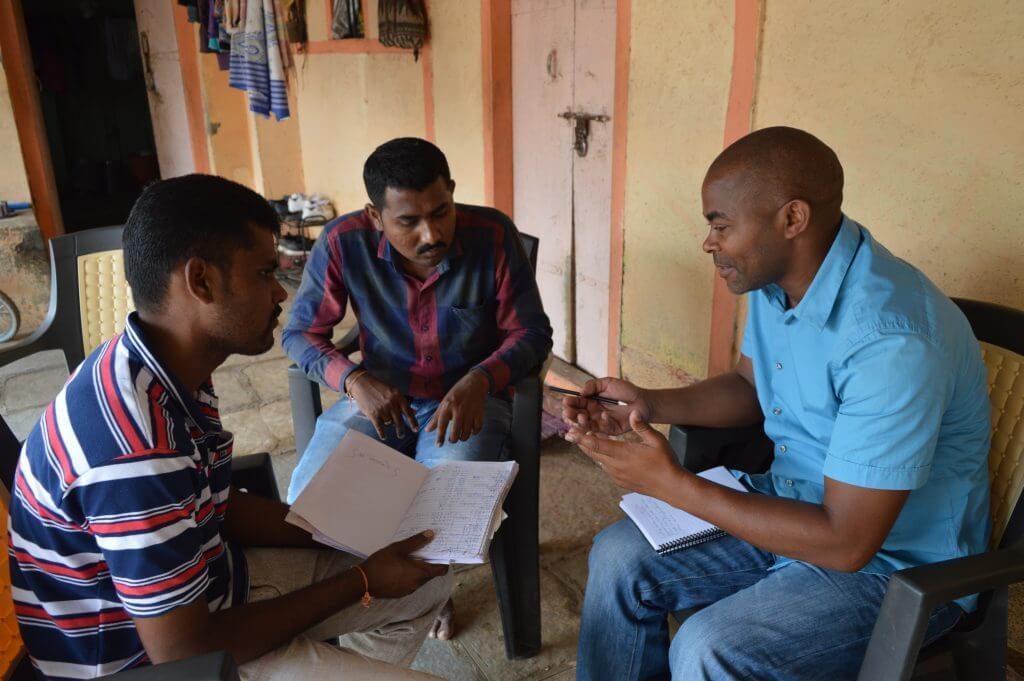

GLOBALG.A.P. partnered with GIZ’s Green Innovation Centers (GIC) India in promoting Good Agricultural Practices and developing adequate solutions to benefit all stakeholders in the agricultural value chains in India – from small-holder producer to final consumer.
Part of the joint activities was to assess the preparedness of small-holder farmers for adopting GLOBALG.A.P./localg.a.p. requirements and practices. GLOBALG.A.P. experts assessed 24 farms that were already being supported by GIC, as well as 10 non-supported control farms. The assessments revealed that producers supported by GIC used less chemical plant protection products, but on average had an overall lower profitability due to higher costs for alternative plant protection measures. In addition, stakeholder consultations showed that Indian horticulture supply chains are highly fragmented and price sensitive.
The initial farm assessments and stakeholder meetings provided the project partners with a better idea about the current status of farms in India and major challenges they face, therefore offering valuable insights for developing a roadmap for the implementation of Good Agricultural Practices and labelling options. These are to be discussed in a GLOBALG.A.P. stakeholder workshop which is planned for mid-2020.
Aid for Trade – GLOBALG.A.P. Goes to Latvia
In October 2019, GLOBALG.A.P. partnered with the Aid for Trade project managed by the United Nations Development Programme (UNDP). The aim of the partnership was to allow selected experts from the agricultural value chain to gain a deeper understanding of the international trading system for fruit & vegetables as well as quality and safety requirements, to build capacities on practical aspects of GLOBALG.A.P. implementation, and to facilitate business linkages with Latvian importers and retailers to promote exports of Uzbek agro-products.
GLOBALG.A.P. organized a five-day study tour to Latvia as one of the key European markets for Uzbek exports. With its diverse program, the tour provided a representative picture of national quality infrastructures and international trade, while also offering very specific insights into the daily work of the different organizations and companies. The program included visits to the Latvian Rural Advisory and Training Centre (GLOBALG.A.P. country partner in Latvia), a GLOBALG.A.P. certified farm, a certification body, retail chains and importers, laboratory and veterinary services, and an agricultural university.
Furthermore, the 10 Uzbek delegates expanded their business network with the representatives of key organizations and companies in Latvia who could become potential business partners. The tour thus contributed to the promotion of Uzbek agro-exports and further development of the Uzbek quality infrastructure and trade opportunities.
INTEGRITY PROGRAM
The GLOBALG.A.P. Integrity Program involves a range of interconnected activities as pictured below.
Integrity Program 2019 in Numbers:
COUNTRY PARTNER PROGRAM
GLOBALG.A.P. is all about collaboration. Our partners share our commitment to the GLOBALG.A.P. principles of transparency, sustainability, and promoting Good Agricultural Practices all over the globe.
GLOBALG.A.P. Country Partners 2019 – 2020

In India
Indian Council of Food and Agriculture
Scope: Crops, Aquaculture, Livestock
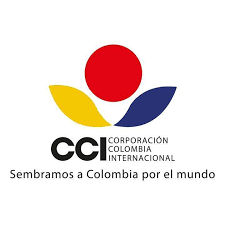
In Colombia
Corporación Colombia Internacional (CCI)
Scope: Fruit & Vegetables

In the Dominican Republic
Junta Agroempresarial Dominicana, inc.
Scope: Fruit & Vegetables

In Latvia
Ltd. Latvian Rural Advisory and Training Centre
Scope: Livestock, Fruit & Vegetables, Crops
GLOBALG.A.P. DIGITAL
The GLOBALG.A.P. Database is a key tool of the Integrity Program. It contains all the producers with a GLOBALG.A.P. certificate worldwide and their unique 13-digit identity number (GGN). Anyone can search the Database for a GGN and find all the relevant product and certification information for that producer. The Database enables instant and complete accessibility of registration and status data for every producer and product, thus ensuring traceability and transparency.
GOBALG.A.P. Document Center
Social Media Followers
CERTIFICATION BODIES
GLOBALG.A.P. relies on independent third-party certification bodies to issue certificates. Only GLOBALG.A.P. approved certification bodies (CBs) may conduct GLOBALG.A.P. audits on farms, issue GLOBALG.A.P. certificates to producers, and update the GLOBALG.A.P. Database.
We would like to thank these CBs for being a valuable part of the GLOBALG.A.P. system and recognize their continued efforts to improve performance.
Countries with Local Offices of GLOBALG.A.P. Approved Certification Bodies around the World
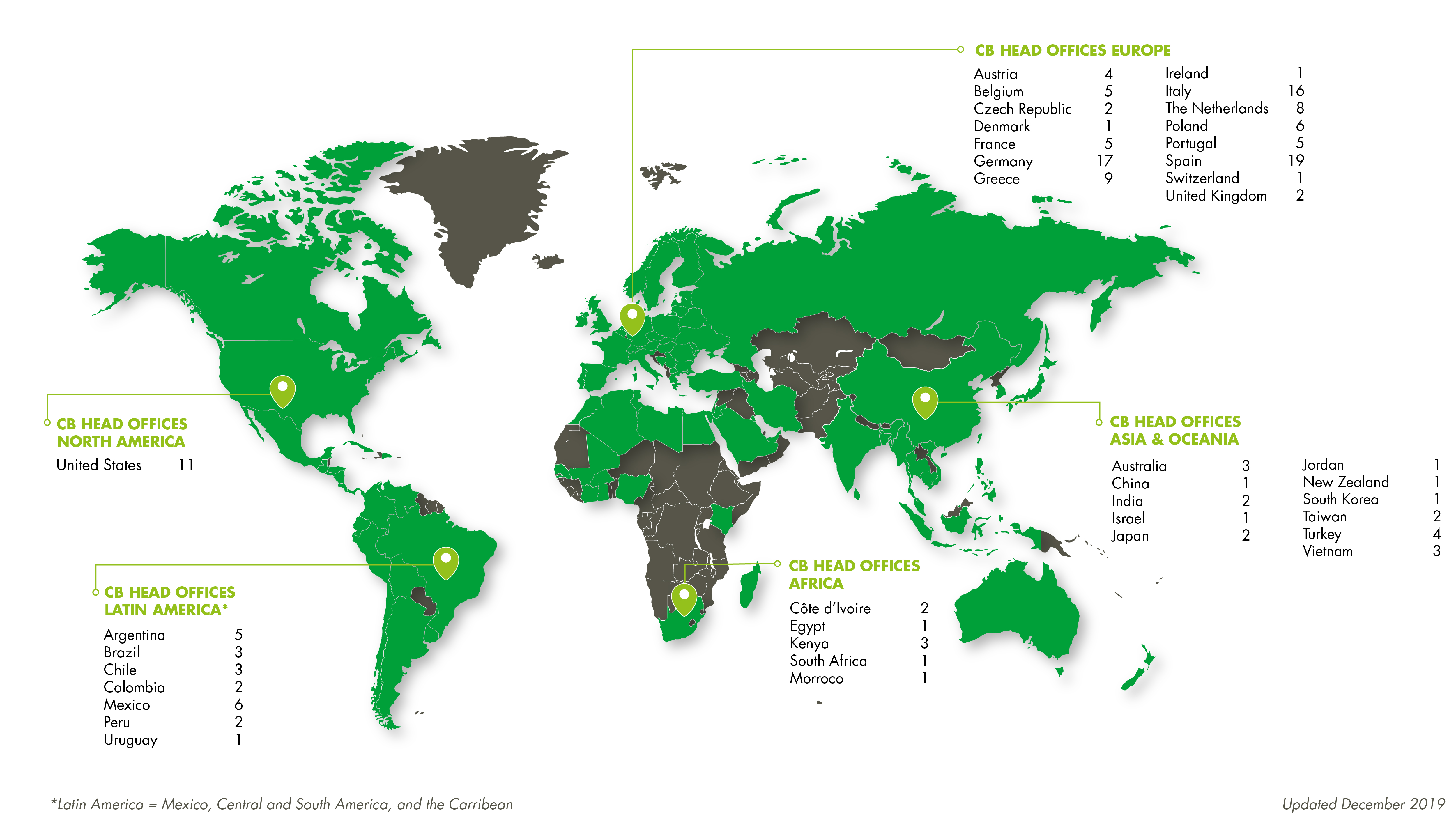
For more information on GLOBALG.A.P. trainings for certification bodies in 2019, please see our Integrity Report 2019.
< PREVIOUS
GGN CONSUMER LABEL
NEXT >
GOVERNANCE & NETWORK
